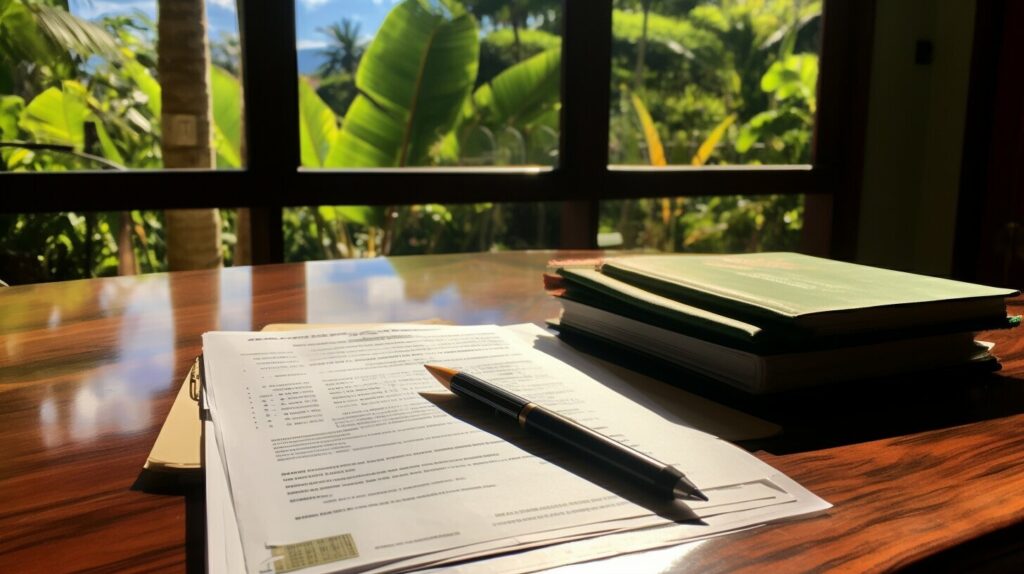At the forefront of property financing in Costa Rica, GapInvestments.com stands as a beacon for…

Understanding Costa Rica Residency Requirements: A Guide
Obtaining residency in Costa Rica opens up a world of opportunities and benefits. From the various residency options to the specific criteria and qualifications required, this guide will help you navigate the process smoothly.
Fulfilling the residency requirements in Costa Rica is essential for those looking to make this beautiful country their new home. Whether you are considering retiring in Costa Rica, starting a business, or simply seeking a change, understanding the residency options and qualifications is crucial.
To qualify for residency, individuals must establish residency, demonstrate language proficiency, and possess good moral character. The requirements vary depending on the residency type, such as pensionado, rentista, investor, or other options.
Once the necessary criteria are met, the application process begins. This involves submitting the required documents and attending an interview. If approved, you will receive a Costa Rican ID card as proof of your legal status.
Acquiring residency in Costa Rica comes with numerous benefits. With an improved lifestyle, you can enjoy the country’s stunning natural landscapes, diverse culture, and warm climate. The robust healthcare system and quality education opportunities further enhance the appeal of living in Costa Rica.
Retirees are particularly drawn to Costa Rica for its affordable cost of living and ample leisure activities. From exploring vibrant rainforests to relaxing on pristine beaches, this country offers an incredible retirement experience.
Aside from the traditional residency options, Costa Rica also offers the new digital nomad visa, designed for remote workers seeking a favorable environment for their professional pursuits. Additionally, residency through marriage or having a Costa Rican child is another avenue available.
It is important to note that all residency applications require certain documents, such as proof of income, birth certificates, police clearances, and passport copies. These documents must be legalized and translated into Spanish.
Key Takeaways:
- Obtaining residency in Costa Rica offers numerous benefits, including an improved lifestyle, quality healthcare, and economic opportunities.
- The residency options in Costa Rica include pensionado, rentista, investor, digital nomad, marriage, and having a Costa Rican child.
- Residency criteria include establishing residency, language proficiency, and good moral character.
- Required documents for residency applications include proof of income, birth certificates, police clearances, and passport copies.
- All documents must be legalized and translated into Spanish.
Costa Rica Residency Options and Application Process
To apply for residency in Costa Rica, you’ll need to fulfill specific requirements and submit the necessary documents. This section will help you understand the application process and the documents needed for each residency option.
Pensionado Residency
The pensionado residency is designed for retirees who receive a fixed income, such as a pension. To qualify, you must prove a monthly income of at least $1,000 from a reliable source for at least two years. You will also need to provide documents such as your birth certificate, police clearance, and passport copy. Additionally, all documents must be legalized and translated into Spanish. Once approved, you’ll receive a Costa Rican ID card, granting you permanent residency and access to a range of benefits.
Rentista Residency
If you don’t receive a pension but have a reliable source of income, the rentista residency may be the right option for you. The requirement for this residency is a monthly income of at least $2,500 for two years. The income can come from various sources, such as investments, rental properties, or royalties. Similarly, you’ll need to submit the required documents, legalized and translated into Spanish. Upon approval, you’ll receive your Costa Rican ID card and enjoy the benefits of residency in Costa Rica.
Investor Residency
The investor residency is ideal for those who want to contribute to Costa Rica’s economy. The minimum investment required is $200,000 in a qualifying business or real estate. You’ll need to provide proof of the investment, along with the other necessary documents. This residency option offers great opportunities for entrepreneurs and those looking to start a new business venture in Costa Rica.

| Residency Option | Requirements | Documents |
|---|---|---|
| Pensionado | A monthly income of at least $1,000 for two years | Birth certificate, police clearance, passport copy |
| Rentista | A monthly income of at least $2,500 for two years | Birth certificate, police clearance, passport copy |
| Investor | A minimum investment of $200,000 in a qualifying business or real estate | Proof of investment, birth certificate, police clearance, passport copy |
It’s important to note that regardless of the residency option you choose, all documents must be legalized and translated into Spanish. This ensures that your application meets the requirements set by the Costa Rican authorities. With the right documentation and fulfilling the residency requirements, you’ll be on your way to enjoying the benefits of living in Costa Rica.
Conclusion
Understanding the residency requirements in Costa Rica is crucial for anyone considering living or investing in the country. By following the guidelines and fulfilling the necessary criteria, you can enjoy the numerous benefits that come with obtaining residency in Costa Rica.
Obtaining residency in Costa Rica comes with various options, including pensionado, rentista, and investor residency. These options cater to different individuals based on their personal circumstances and goals. Each residency type has its own specific requirements, such as proof of income, language proficiency, and good moral character.
The application process for residency in Costa Rica involves submitting necessary documents, such as birth certificates, police clearances, and passport copies. These documents need to be legalized and translated into Spanish before submission. Once the application is complete, an interview is typically conducted to assess the applicant’s suitability for residency.
Upon approval, a Costa Rican ID card is issued as proof of legal status. This ID card grants residents the right to live and work in Costa Rica. Residency in Costa Rica offers numerous benefits, including an improved lifestyle, access to top-notch healthcare, quality education, and economic opportunities. Retirees are especially drawn to Costa Rica for its low cost of living and abundant leisure activities.
In addition to the pensionado, rentista, and investor residencies, there are other options available for obtaining residency in Costa Rica. These include the new digital nomad visa, as well as residency through marriage or having a Costa Rican child. Each option has its own set of requirements and benefits.
To ensure a smooth application process, it is important to gather all the necessary documents and carefully follow all instructions. Legalizing and translating documents into Spanish is a crucial step. By understanding and fulfilling the residency requirements in Costa Rica, you can open the door to a new chapter in your life in this beautiful country.
FAQ
Q: What are the different types of residency options in Costa Rica?
A: The different types of residency options in Costa Rica include pensionado, rentista, investor residency, digital nomad visa, residency through marriage, and residency through having a Costa Rican child.
Q: What are the general requirements for obtaining residency in Costa Rica?
A: The general requirements for obtaining residency in Costa Rica include establishing residency, demonstrating language proficiency, and having good moral character.
Q: What is the application process for residency in Costa Rica?
A: The application process for residency in Costa Rica involves submitting necessary documents and attending an interview.
Q: What documents are required for a residency application in Costa Rica?
A: The documents required for a residency application in Costa Rica include proof of income, birth certificates, police clearances, and passport copies.
Q: Are documents required for residency applications required to be legalized and translated?
A: Yes, it is important to legalize and translate documents into Spanish for residency applications in Costa Rica.
Q: What are the benefits of obtaining residency in Costa Rica?
A: The benefits of obtaining residency in Costa Rica include an improved lifestyle, top-notch healthcare, quality education, and economic opportunities.
Q: Why are retirees drawn to Costa Rica for residency?
A: Retirees are drawn to Costa Rica for its low cost of living and leisure activities.


